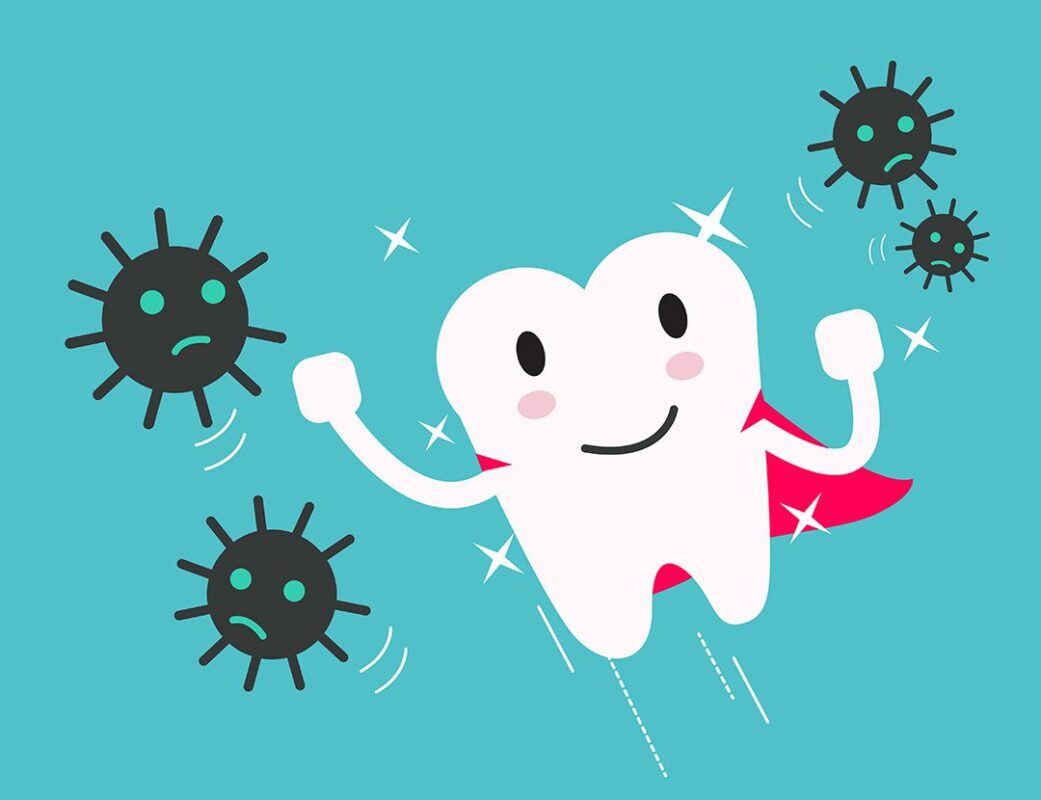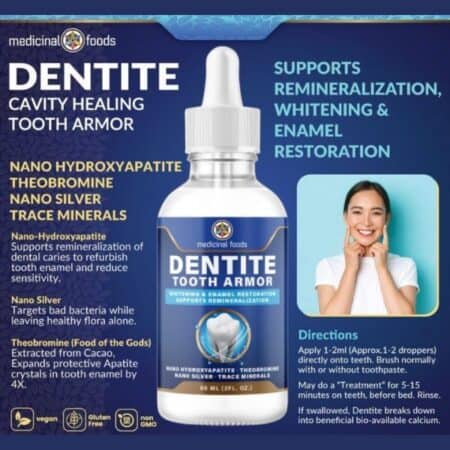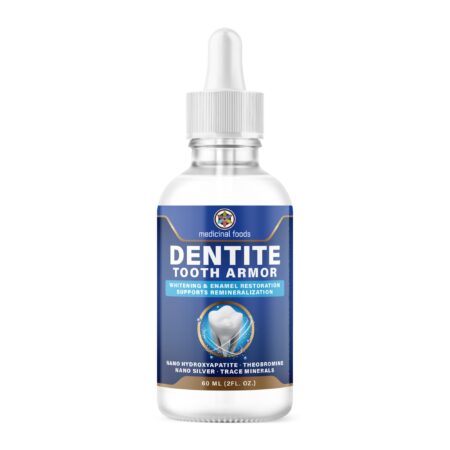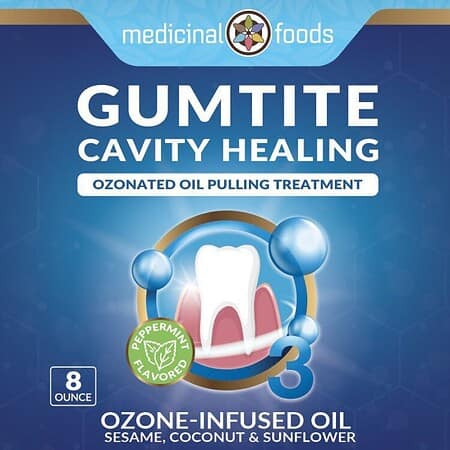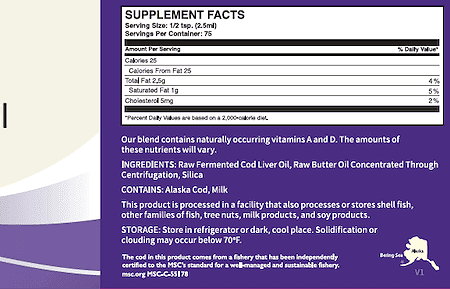You’re sure you have a dental issue since your tooth hurts, and now you want an answer to, "Can A Cavity Go Away?!"
This is still an unanswered question for many. Is it something that has to be addressed right away?
Using Dentite, you can heal small cavities, and fill-in the micro-holes that bacteria cause.
Eventually, will things improve on their own? How probable is it that the situation may deteriorate, and how can it be avoided? You need to know what it looks like to treat it properly.
After that, you’ll be able to take action to make things better. So in this blog post, we will have a complete guide for you. Just keep reading.
What is it?
Teeth abrasions develop over time as microscopic holes in the enamel of the teeth. The acid eats away at the tooth’s protective enamel.
Once the tooth’s enamel is gone, the space may begin to eat away at the remainder of the structure, eventually destroying the whole tooth. There are nerves and blood vessels in the tooth where the damage has reached. It’s at this point that the agony sets in.
It can impact your nerve
These might also damage the nerves in your mouth if they are not cleaned out properly. Nerves exposed to the air may become very painful when a mouth infection forms.
When nerves grow more sensitive, they may produce constant and acute pain challenging to control.
Infection in a Poorly Ventilated Space
Aside from the discomfort, Infection in the jaw and mouth region is a severe issue. Swelling and pain are two of the most common side effects of infections.
Illness and death are inevitable
It may produce life-threatening illnesses, despite what many people think. This is now very uncommon as a result of advancements in technology. Things don’t need to be left unanswered for so long.
Allowing it to worsen has a snowball effect, as you can see. If you don’t take care of these as soon as they appear, they will only worsen. If you feel any oral health problems, you should see your dentist right away.
Every tooth is different
A typical infection develops in six to four months but can take as long as six years. Each instance is unique because of the circumstances in your mouth. It may take longer to treat as a result of this.
If You Have a Cavity, Can It Go Away
Factors to Consider
The time it takes for a tooth abrasion to develop depends on various variables. This list of the most prevalent variables influences how rapidly a tooth decays.
-
Cavities may form when the mouth’s acidity is elevated. In teeth, acid assaults are pretty prevalent. Because of repeated acid assaults on the teeth, infections may develop.
-
At the gum line, the thickness of the tooth enamel decreases. Because it forms closer to the gum line, they are more likely to occur there.
-
Mineral-rich enamel takes longer to form cavities than mineral-poor enamel.
Signs and symptoms
You may notice these symptoms as the decay spreads, even though tooth decay usually does not produce symptoms.
-
Dental fissures that are readily apparent.
-
Tooth sensitivity and pain in the mouth.
-
The discomfort that results from consuming hot, cold, or sweet meals or drinks
-
Bite that hurts to the bone.
-
Darkening of one or more teeth.
Ways to Prevent it
Delay is a recipe for disaster. So make sure to prevent yourself rather than suffering from a problem later.
Brush Your Teeth Wisely
Brushing twice daily may help keep gums and teeth healthy. Brushing your teeth twice a day is critical in the fight against tooth decay. When brushing your teeth, pay attention to every corner and get rid of any food particles there.
Make sure you stay hydrated
When you have a dry mouth, you risk developing infections. Drinking water may help keep your mouth healthy and free of inflammations.
Fluoride
Fluoride can inhibit the growth of microorganisms however it has known dangers and side affects. A better alternative to fluoride may be hydroxyapatite.
Rinse with sea salt water
For a long time, saltwater was used to treat wounds and illnesses. The antibacterial properties of saltwater make it an excellent disinfectant.
Bacteria that cause oral infections may be killed with it as well. When rinsing out the mouth, use salt water to limit their development.
Oil Pulling
It is believed that oil pulling has its roots in Ayurveda, an ancient complementary and alternative medicine system. After twirling it around your mouth, it takes roughly 20 minutes to spit up a spoonful of sesame or coconut oil.
Some claims about oil pulling are not valid. However, there is evidence that it may benefit oral health.
According to a study published last year, oil pulling helps keep gums healthy by reducing germs, plaque, and inflammation.
Oil pulling using coconut oils may help with mouth hygiene and oral health. For this approach to be shown beneficial, additional study is required.
Aloe vera
Aloe vera gel’s antibacterial qualities may aid in the battle against germs that cause oral infections. The antibacterial properties of this gel helps to keep the mouth clean by preventing the growth of microorganisms.
Disinfecting the tooth cavity has been made easier with the help of tea tree oil and aloe vera. It is as effective as chlorhexidine, a disinfectant often used in hospitals.
Avoid Phytic acid
Tooth decay may be caused by phytochemicals like phytic acid. This substance prevents minerals from being absorbed. Iron and zinc are two examples of this.
Tooth decay and cavities may be prevented by avoiding phytic acid in the diet. Cereals and legumes are the most prevalent sources of phytotoxic acid.
Root licorice is an excellent option
S. Mutans, the bacterium that creates oral problems, may be targeted by the antibacterial capabilities of licorice root.
Licorice root oil is all naturual, has similar antibacterial qualities to chlorhexidine mouthwash, and is more potent than Fluoride!
Avoid Refined Sugars
The worst thing for your oral health is exposing it to acid. An acidic diet might increase the symptoms. In the presence of sugary acid, gums will swell
Caries may be prevented if you avoid sugary meals and beverages. Rinse your mouth with water after consuming a sweet food or drink. Flossing and brushing your teeth can prevent tooth decay.
How to Make a Cavity Go Away
Treatment
Regular dental examinations may achieve the early detection of oral problems. If you get treatment as soon as possible, you have a higher chance of halting the progression of tooth decay.
How therapy is administered depends on the severity of your problem and its kind. Options for therapy range from simple to complex.
Using Hydroxyapatite
Your teeth may be restored and can be reversed with hydroxyapatite treatment. Treatments may be applied to your teeth in various ways including using liquid mouthwash.
Fillings
Fillings (also known as restorations) are the most incredible therapeutic option for the deterioration that has progressed beyond the first stages.
Tooth-colored composite resins or porcelain may be used to fill cavities, as dental amalgam combines many different materials.
Crowns
A broken or badly decaying tooth’s complete crown may be replaced with a crown. Your dentist will remove all rotten tooth structures and a sufficient amount of healthy tooth structures to guarantee a proper fit.
In addition to gold and high-strength porcelain, resin and porcelain-fused-to-metal crowns are other options.
Canalization of the Roots
When your tooth’s pulp is infected, you’ll need a root canal. The infected tooth’s pulp is extracted and disposed of at an oral waste disposal facility.
Root canal cleaning may sometimes need the use of medicines. A filler is subsequently inserted into the pulp.
Extractions of Teeth
Extraction is the only option when teeth are so rotten that they cannot be saved. Dental bridges and implants may be used to replace a lost tooth and fill the gap.
Consult A Dentist
Before making an appointment, make a list of the following:
-
Dosages and any other information regarding your drug regimen must be shared with your doctor.
-
Have you ever experienced anesthetic or allergy-related side effects?
The following are some common inquiries that you might get answered by your dentist:
-
Is there anything wrong with me? Perhaps a crown and root canal are required.
-
In how many trips will this tooth be fixed?
-
What can be done to alleviate the pain?
-
What can I do to make this discomfort go away?
-
After the operation, what should I do?
-
Besides brushing and flossing, what more can I do to avoid cavities?
-
Do you have any printed items that I might utilize, such as brochures?
During your visit, don’t be afraid to ask any questions you may have.
Dental spaces take time to develop. The decay process might take months or even years to reach the stage where a tooth requires treatment. It is only when the mouth is acidic that the process of tooth demineralization may begin. Fortunately, this isn’t the case for all people.
So your answer for can a cavity go away is yes, it’s possible. Early detection and treatment of tooth decay are possible. This is why it’s essential to see your dentist for an examination at least once every six months.


